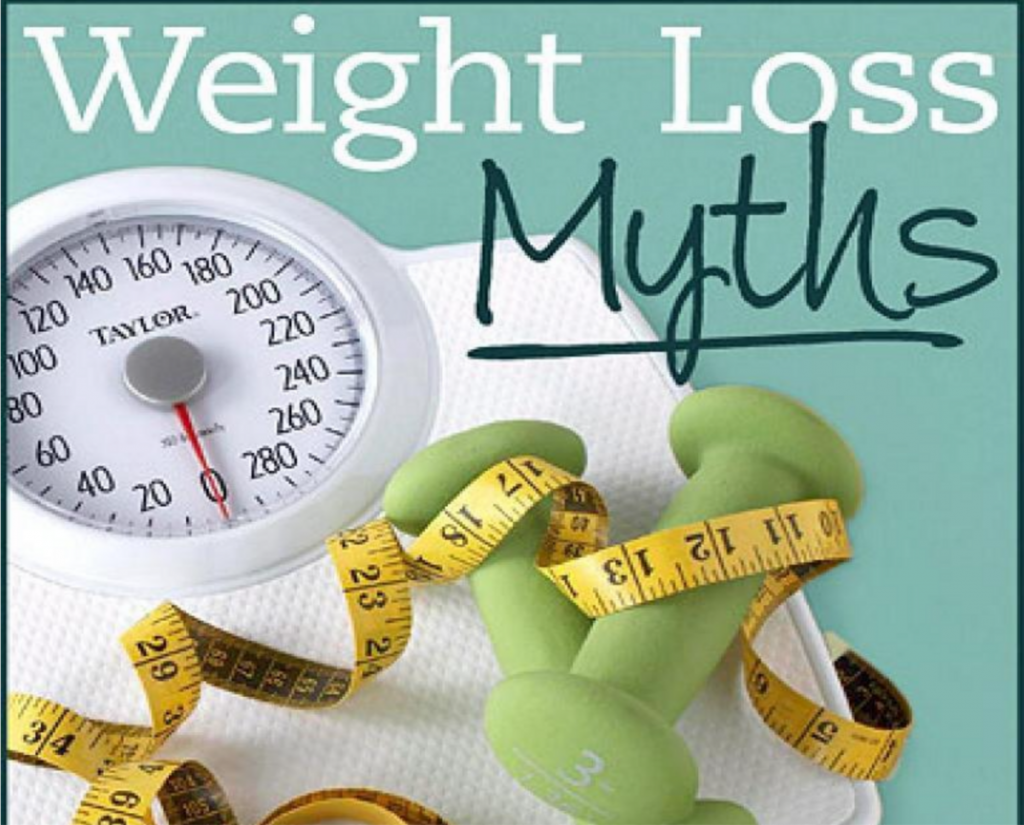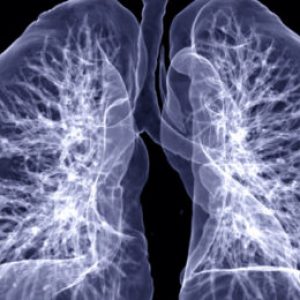Young people in the twenty-first century are obsessed with weight loss and fitness. To get into shape, they rely on online resources, hitting the gym, and a keto diet, or often fasting. A few of them have been confirmed, and others are legends. I was even caught up in the myths when I first started losing weight.
Here are some weight-loss misconceptions and debunked facts:
1. Supplements can help you lose weight.
There are thousands of supplements on the market that promise you will lose weight simply by taking them, but when investigated and tested, they are rarely found to be helpful.
It works for a select few just due to their thinking. They believe that using supplements will help them lose weight, as a result, their food intake is reduced to nil. This is a sham treatment in which the medicine is inactive and only the brain is responsible for its success.
Unfortunately, weight loss supplements are not a magic pill. There are many misconceptions about these drugs, and it’s important to grasp a few things. There is no easy answer, so be wary of promises of instant results.
reduction in weight You’ll probably become frustrated if the cases appear to be ludicrous and exaggerated.
2. Eliminate carbohydrates from your diet.
Some people claim to be on a “low carb diet” or have quit eating carbohydrates in order to lose weight rapidly and easily. However, carbohydrates can be found in dairy products, vegetables, and fruits. It’s also necessary for our health, and hence eliminating carbohydrates from your diet will not result in rapid weight loss. Carbohydrates are a macronutrient (together with protein and fat) that play a critical role in your growth, energy balance, and weight loss. It is also required for your brain and red blood cells.

If you fully eliminate carbs from your diet, you will notice results at first, but they will eventually stop. The body needs carbohydrates to burn fat since carbohydrates are the preferred energy source. Even AMDR (Acceptable Macronutrients Distribution Range) recommends a daily carbohydrate intake of 45 percent to 65 percent.
If you eat enough carbs in the right amounts, you’ll lose weight. It’s just that the person should know how many carbs they should consume. Excessive consumption has a detrimental impact.
As a result, while carbs should never be fully avoided, knowing how many carbs your body need is critical.
3. Eat breakfast every morning.
Morning meal eaters weigh less than those who skip breakfast, according to internet theories.
However, this is just because eating breakfast causes you to eat less the rest of the day and prevents your Ghrelin (hunger hormone) from skyrocketing, resulting in you eating less throughout the day.
even away from junk food and ready-to-eat(processed) food However, it is entirely dependent on the breakfast food you consume. If the meal is high in nutrition and macronutrients, it can help you avoid consuming extra calories; nevertheless, if the meal is not satisfying, the person will most likely eat more throughout the day.
It is not the breakfast that keeps you from eating too many calories; a proper and nutritious diet is the one that saves you from eating too many calories.
It is not necessary to force yourself to eat breakfast in order to lose weight. Focus on eating foods that are healthful, nutritious, and satisfying which is far more necessary.
4. Eating outside will cause you to gain weight.

People who are more health-conscious or on a weight-loss journey feel that eating junk food will make them fat. However, this is not the case. As our country moves toward wellness, most eateries have incorporated healthier options on their menus. I recently went to a restaurant where I was pleased to find protein salad, banana oatmeal, and other healthy alternatives on the menu.
Also, having a nutritious snack at home before going out to dine is always a good idea, and drinking water before a meal will help you avoid overeating.
Eating thoughtfully, which includes paying attention to the flavors of the food you’re eating while eating, can help you avoid overeating. Eating outside isn’t awful; it’s just a decision you must make carefully.
5. To lose weight, you must fast and starve.
Many weight-loss programs and personal trainers suggest going without food for a day or eating only liquids. All of these diets produce results, but they are just temporary and unhealthy for your body.
Intermittent fasting is one of the various fasting programs available on the market. All of these programs are designed to help you reduce your calorie intake. If a person can control their calorie intake throughout the day and consume a similar number of calories in intermittent fasting mode, there is no need for intermittent fasting.
Also, keeping your body on a low-calorie diet for a long time slows down your metabolism, and a slow metabolism can make you tired, which stops your body from using more energy and makes your body release hunger hormones, which make you want to eat more. Your body will eventually strive to prevent you from losing weight.
If you believe that you will follow certain tactics for a few months and then return to your normal eating habits after you reach your goal weight, you are mistaken. Then my apologies! You are incorrect in this instance. Losing weight is a journey, not a destination. It improves the health of your lifestyle and eating choices. Only those topics that you can follow for years should be pursued.
Keeping oneself hungry or fasting every day never works for long periods of time. Once you resume your regular diet, those shredded temporary kilogrammes will return, along with double the weight you lost.
6. Drinking more water helps you lose weight.

People often talk about drinking more water when they want to lose weight, but that doesn’t mean that drinking more than the recommended liters of water will help you lose weight. Taking adequate water keeps you hydrated and prevents you from misinterpreting hunger signals, but it should never be drunk in excess.
You’re probably wondering how much water you should drink. It all depends on how many calories you eat, how much you move, and how much weight you have. Everyone is different, but the general guideline is to drink 2 to 3 liters of water every day. A person’s pee can simply reveal whether or not he or she is getting enough water. On the other hand, people begin to drink more water than is required in order to avoid dehydration.
Losing weight quickly leads to hyponatremia, which causes brain cells to enlarge and stop functioning. Other signs of excessive water consumption include headaches, nausea, and vomiting.
It’s always a good idea to know how much water your body needs and drink only the amount of water necessary to keep the organs operating properly, regulate blood pressure, and excrete toxins through urination, but overeating will never help you lose weight.
7. A healthy diet is not always beyond your budget.
It is commonly assumed that healthier foods are more costly. However, it is all up to you. Healthy food does include a lot of expensive options, but it also has some less expensive options. For instance,
Individuals can choose pulses, beans, frozen vegetables, and other healthful foods to follow a balanced diet. Salad, dosa, idli, and other outside foods are available.
When we talk about food with an organic label, it gets more expensive, but you don’t have to buy organic labeled food to acquire nourishment. Whole grains, veggies, and fruits provide nutrients our bodies require. It is a good idea to read the ingredients list before purchasing a packaged diet meal. It clears up any questions you have and, in some cases, keeps you from buying the wrong product.
It’s all about how you think. People are willing to eat a single Rs.300 burger that lacks nourishment and sometimes does not even satisfy their hunger needs, and which takes just five to six minutes to finish. On the other hand, the same person considers it extravagant to spend Rs. 180 to 200 on a 1 kg apple that is nutritious and can be consumed for a week.
People consider one extra consideration when calculating the cost of healthy food and unhealthy food, and it is the “amount of food” you will receive for your money. For example, you may acquire a plate of noodles from the street for Rs. 100 that is devoid of nutrients and high in unhealthy fat. For Rs.200, you may purchase half a kg of broccoli, which will contribute to your one-time nutrient-dense dinner.
It is always ‘you’ who must make good eating choices within your budget. There are healthy solutions for all budgets.
8. Reduce Calorie to manage weight

A calorie is the quantity of energy required by the body to carry out all of its processes, whether mental, physical, or metabolic. So, while all calories are mathematically equal, when it comes to our health and energy balance, all calories aren’t created equal.
The food you eat may have a significant impact on your body’s biological system, which regulates your eating habits, hunger, and so on. Our body’s hormones and brain center are affected by a variety of foods and their macronutrients. Ghrelin, for example, is a hormone that reflects how hungry you are. When you’re hungry, it rises, and when you’re not, it drops.
Now, some foods cause an increase in Ghrelin levels, while others do not. Some foods have empty calories, while others have nutrient-dense calories. Few calories have negative health consequences. For example, you’re eating saturated fat foods like cakes, bacon, sausage etc., which are low in calories yet raise cholesterol levels, leading to heart problems. Food that is high in macronutrients, vitamins, and minerals is recommended.
9. Low-fat or low-calorie foods are always a smart option.
When you see a food item with a low-fat label, you naturally assume it is a healthy option. Because of this, many of us buy it and eat it in excess, believing that it will help us lose weight and that we are making a healthy choice. Is it, however, truly healthy?
It is critical to understand the type of fat we are consuming; there are numerous dangerous low-fat products on the market that entice us for more. Because it is processed food, a lot of sugar or salt is added to make low-fat meals tasty. And the “low-fat” label allows you to devour the meal without feeling guilty.
People have used artificial sweeteners and a lot of processing on food to make it last longer, which is bad for human health. To increase shelf life, polyunsaturated fats are converted to saturated fats. These fats are known as trans fats, and the recommended amount of trans fat in a food is less than 0.5 percent because it is harmful fat. Trans fat foods should always be avoided. We have fresh foods such as vegetables and fruits that do not claim to be low fat because they are not processed.
Because everyone is aware of it, no one brands an apple as a low-fat food. Many of us are just interested in low-fat or diet foods. This is completely incorrect. Always read the nutrition label for details on the components used, as well as the amount of sugar, trans fat, saturated fat, protein, and other nutrients. Before purchasing any food goods, it is critical to read the label rather than relying just on the “low-fat” label.

10. Being overweight makes you fatter.
When compared to carbohydrates and protein, fat has the most calories per gram. It has 9 calories per gram, compared to 4 calories per gram for carbs and protein. Fat is also the most prevalent ingredient in junk food. However, if the fat is consumed in a healthy amount, it will never make you obese. It also depends on the type of fat you consume. There are healthy and bad fats, and eating healthy fats is always encouraged.
Many people attempt to lose weight by completely eliminating fat from their diet, but this is harmful to their health. Some fats are really necessary for your body. Omega 3 and Omega 6 are two examples. Healthy fats are essential in our bodies. It protects our organs and bones while maintaining the body’s thermal temperature. If any diet advocates completely eliminating fat, you should avoid it.
negative consequences However, we can still monitor the sort of fat we consume. Always attempt to consume more polyunsaturated fat. The proportion of polyunsaturated fat in a food item can be seen on the nutrition label. The worst fat is trans-fat, which we should avoid at all costs. The AMDR recommends that you consume 25 percent to 35 percent of your daily calories from healthy fats.
In conclusion
Even though I came across many and followed them since I was unaware of the verified truths, there are many myths that you may have heard during your weight reduction journey.
Every single one of us now has internet access. So, why can’t we use it to double-check these falsehoods before putting our faith in someone? Because, in the end, your body, organs, and mind will be harmed, and the worst part is that you won’t be able to complain to anyone about it. You must be deliberate in selecting the information or tactic that you will use.
To lose weight quickly, people use all of the shortcuts and misconceptions available. But, regrettably, there is no quick fix for weight loss. If you attempt to take any, you will be further from your aim. Weight loss is a wonderful journey that requires a lifestyle adjustment. Always do the things that you can do for a lifetime.

It is not a six-month, one-year, or multi-year process. It is a long-term lifestyle shift that will provide you with good health and a happy outlook on life. I thoroughly enjoyed my weight loss experience. My way of life, perspective, and approach to things have all altered drastically. Even I now save my friends and family from believing any myth. Cross-verify the misconceptions and find the truths, whether you read it somewhere or obtain it through a video, the internet, a trainer, or any other medium. Always do your homework.
.
Disclaimer: The author’s views are his or her own. The facts and opinions in the article have been taken from various articles and commentaries available in the online media and Eastside Writers does do not take any responsibility or obligation for them.
Note: Contact our Writers at www.eastsidewriters.com for writing Blogs/Articles on any niche. We have experts in various domains from Technology to Finance and from Spirituality to Lifestyle and Entertainment.







Pingback: Unclog Arteries With Foods & Prevent A Heart Attack - Eastside Writers
Pingback: A Complete Guide to Detox and Rejuvenate Your Body - Eastside Writers
Pingback: 12 foods to be avoided for young and glowing skin - Eastside Writers
Pingback: Chronic Kidney disease- the Risk Factors and Treatment - Eastside Writers
Pingback: Shilajit- It's Unknown And Untold Wonders in Your Well-Being - Eastside Writers
Pingback: 9 Best Foods For Hypo And Hyper Thyroid - Eastside Writers
Pingback: Two Proven techniques to get rid of stubborn belly fat - Eastside Writers
Pingback: Low-impact exercise is essentially the new normal for senior citizens. - Eastside Writers
Pingback: Boost Your Blood Circulations To Counter Health Issues - Eastside Writers
Pingback: 10 Natural Home remedies that help during menopause can be a great Relief - Eastside Writers
Pingback: Debunking 7 Common Penis Myths: Separating Fact from Fiction - Eastside Writers
Pingback: Reduce Belly Fat And Weight With Proper Exercises And The Correct Diet - Eastside Writers
Pingback: Uncovering the Secrets of Fig: From Ancient Food to Modern Medicine - Eastside Writers